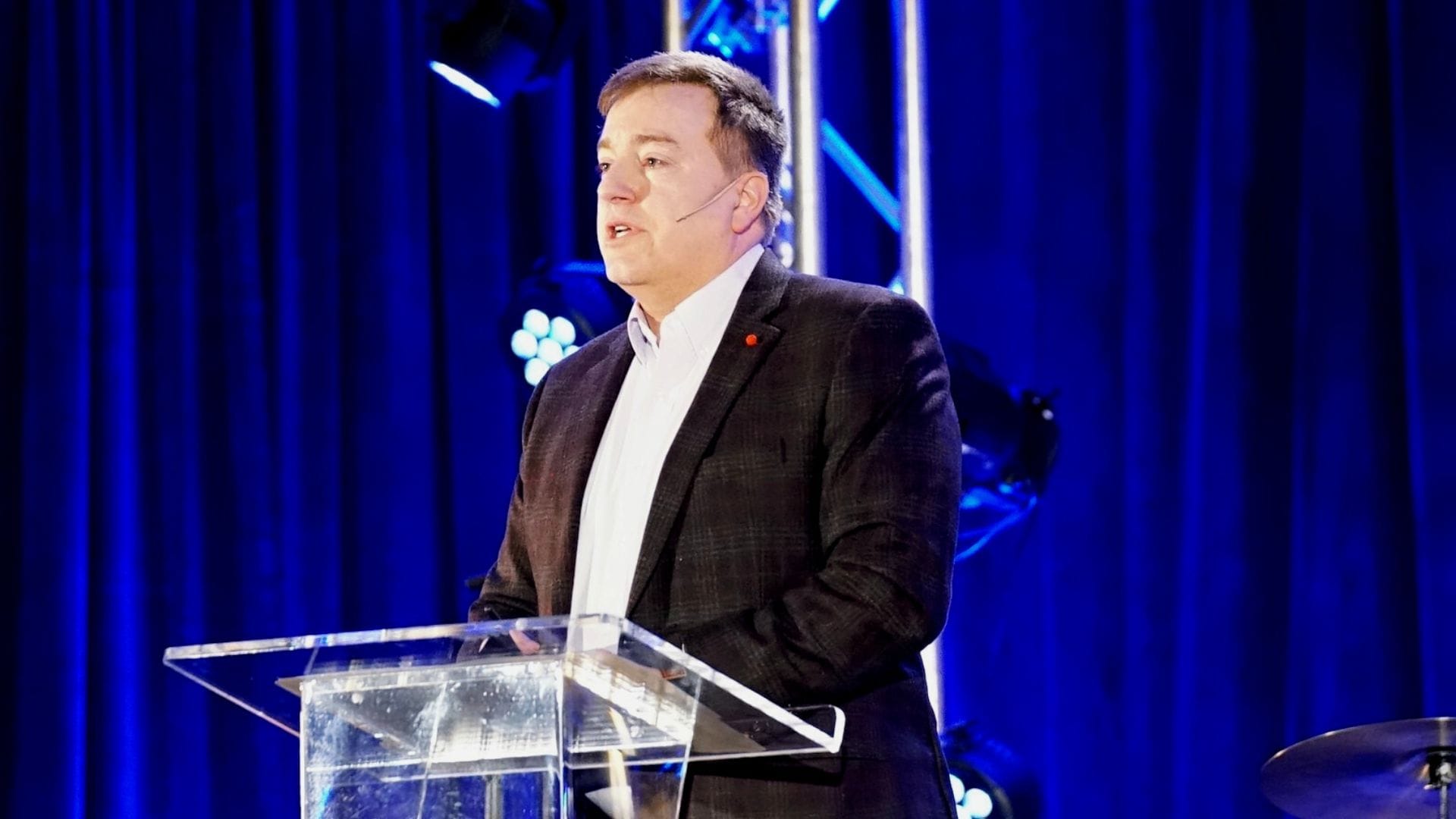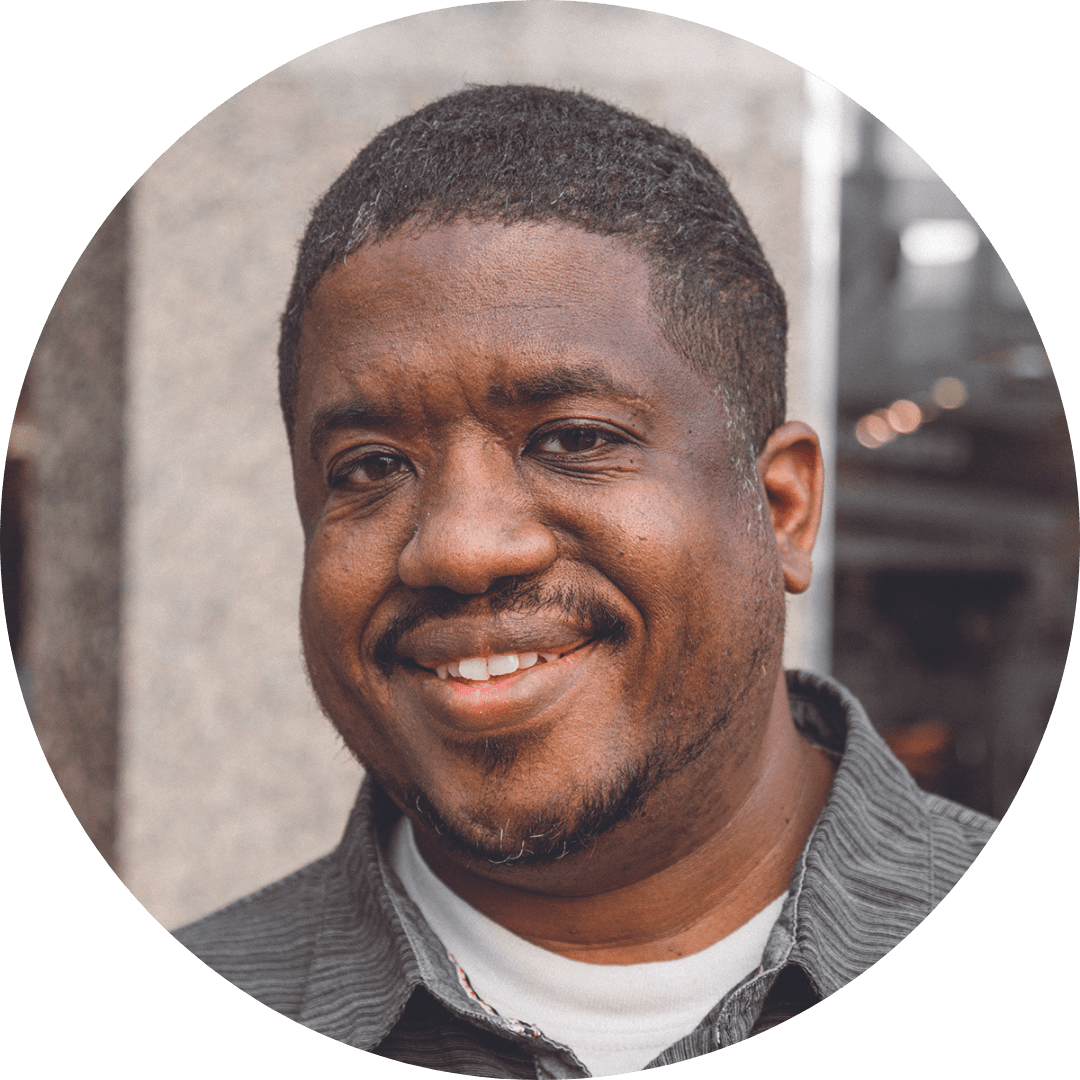“For if someone comes to you and preaches a Jesus other than the Jesus we preached, or if you receive a different spirit from the Spirit you received, or a different gospel from the one you accepted, you put up with it easily enough” – 2 Corinthians 11:4, NIV
At a plenary session at Midwinter 2022, author and sociologist Michael Emerson talked about his new research on the state of race in the church, highlighting a set of errant beliefs and practices he referred to a “religion of whiteness.” Recently the Companion sat down virtually with Emerson, who is department head in sociology at University of Illinois Chicago and church chair at New Community Covenant Church Chicago, to talk about his research. This conversation has been edited for length and clarity.
Your book Divided by Faith had a great impact on how I understood racial dynamics in the church. What was the impetus behind your latest round of research?
Around 2018, almost two decades since I’d written Divided by Faith, some colleagues and I were asking, Had things changed? If they had, how? So we made a proposal to the Lilly Endowment and said, “We’d love to take a pulse of the state of race in the church in America.” They were gracious enough to give us a grant.
We formed a collaboration team of about 300 people—practitioners, pastors, academics—and we tried to use that team to help inform us and guide us. We started by interviewing about a hundred of those folks and filming those interviews with just one question: Basically, what do you see as the state of race in the church in America today?
We heard some powerful things. Mostly we talked to Christian leaders of color, some white folks, and we heard some main themes, which were, “We don’t understand what’s happening in white Christianity anymore. We feel like we’re being thrown under the bus, feel like we’re second, feel like we tried this reconciliation thing, but we’re being totally rejected now.” One quote that I heard a few times was, “I don’t understand what Bible white Christians are reading.”
From all that, we designed a national survey with the help of the collaboration team to see if we could capture that data quantitatively. We tested a random sample of Americans. Of course when you do that, sometimes new questions come up as you’re analyzing. So we went back, this time talking to parishioners and filming them and doing focus groups.
Then 2020 hit. So we redid parts of the survey because we wanted to see if anything had changed from the year prior. We did some ethnographies where people were embedded in churches to see how folks were talking. It all culminated in that Midwinter presentation, summarizing the main themes of our findings. The book on this research, The Religion of Whiteness with Oxford University Press, is scheduled to be released in February.
From your initial experience of presenting your findings at Midwinter, what reactions have you heard? What are people telling you about the data?
As you can imagine, I received quite the bifurcation of reactions. Some were saying, “You’re saying what we’ve been feeling. You’ve put into words and numbers what we’ve been trying to tell people about how we experience the world.” Others, mostly white, were saying basically, “You’ve left the faith, you’ve betrayed us.” Someone created a seven-minute video where they kind of cherry-pick things I said from the presentation. I think it’s labeled something about “woke preacher condemns all white Christians to hell based on survey.” So it’s been quite a mix.
What do you hope this book will accomplish? Are there specific changes or large-scale course-corrections you’re hoping to build momentum toward?
This has been growing in knowledge—the idea that demographic diversity isn’t the answer. It’s not enough. Having multiracial churches is great, but if it’s just so we can say, “Look at us, we’re diverse,” that’s actually in many ways more harmful. It really grinds people up in very negative ways. We’re serious about this idea that if we don’t find a way to come together equally—if we continue to insist one group has to exist according to a certain set of rules, then we’re just playing the devil’s game. We’re getting nowhere and we’re actually harming many, many people, driving them away from church.
A second point, which is interesting at least from a sociological point of view, is that two-thirds of people who are what we call practicing white Christians—whether they’re evangelical, mainline, or Catholic—are practicing a second religion, which we call the “religion of whiteness.”
But that means one-third of white Christians aren’t practicing that. That’s where the hope is, that Christians of color and that one-third of white Christians can find a way to come together. That’s where we can really make some change. The difficulty of course is, how can you tell who’s who? Who can you trust?
We’re not all wearing jerseys out there.
Yeah, exactly.
You talked about your hope that the one-third of white Christians who aren’t practicing the religion of whiteness can partner with other Christians of color. In your talk at Midwinter 2022, you referred to the other two-thirds as the next potential mission field the church needs to reach. Have you uncovered any strategies of how to disentangle people from Christian nationalism and the religion of whiteness?
I like the way you say it, “disentangling.” In the Old Testament, God’s people are constantly worshiping idols, right? We’re saying that’s what’s happening now. We have people trying to worship the true Christ of Christianity, but this religion of whiteness is so interwoven into so many churches that they’re doing both. So they need to become uncoupled, and we have to kick out and tear down these false idols. That is the work of the church in our contemporary time. It’s very much the same work the church has always needed to engage in.
Number one, we have to be able to identify it and call it out. Biblically we see that too. God will speak the truth about whatever thing has become a false idol. We have to ask the church to make a choice—to follow Christ, or to follow this dualistic syncretism, which the Bible always condemns. But make your choice and no more doing both. There’s a lot more work that needs to happen beyond that.
We end the book saying that many people of color have been writing about authentic Christianity for years. We suggest about 40 books to read in order to try to find the common story, the actual Christian story that is separate from this interweaving of the religion of whiteness. We’ve got to tell a new story, which is really just going back to the original story.
As I think about how change happens, it seems like there’s always a progression from the early part of a movement where prophetic figures on the outside—people like John the Baptist—are crying out and saying, “Prepare the way for the Lord.” Then over time as the message starts to sink in, people closer to the mainstream begin to say, “Hey, I think we need to change.” But as that process happens, the edges tend to get sanded down a bit. I’m forecasting that a lot of white pastors might read your book and think, Well, it’s idolatry just like any other idolatry, like sports teams and political parties. Is there a way to make this message accessible without losing our sense of urgency about the harm that’s being done?
When I speak on college campuses, I say that God is shaking the church out. He’s calling us to a reckoning, and lots of churches and people are going to decide, “I’m not going that way. I kind of like the way we’re doing it.” Fine. But there will be the John the Baptist followers who say, “No more.” That’s the remnant. And that’s where change will happen. It’s not going to be in the mainstream. In the mainstream, it will be washed away.
Have you witnessed much of a reaction to this on the academic side? Asked another way, has your researched changed the perception of the church for your peers in academia?
My field is very secular, so many people in my field don’t care about this work. Part of my argument is to ask them, “How can you not care?” This influences politics, and it influences relationships and neighborhoods. You can’t just ignore it.
One of the arguments we make in the book is the reason we cannot actually overcome racial division and injustice is because we look at it as solely a material problem. So we say we’re going to fix it by passing particular laws or by educating people. What we’re trying to argue in this book is that if race is a religion, race actually becomes a “different spirit” as Paul describes in 2 Corinthians 11:4. We’re arguing that what’s being worshiped is this religion of whiteness—the power and all the things that “whiteness” represents.
So if you’re making the argument that race is being religionized—or maybe that religion is being racialized—how do you respond to people who say, “Well, that just means that you shouldn’t talk about race. The whole topic is from the devil, so why are you doing the devil’s work?”
Cancer is the devil’s work too, but if we don’t talk about it, we all die. The same thing happens if we don’t talk about race and religion—we die.














